Local experts from the International Fund for Animal Welfare (IFAW) deployed last week to rescue seven Atlantic white-sided dolphins in Wellfleet, Massachusetts.
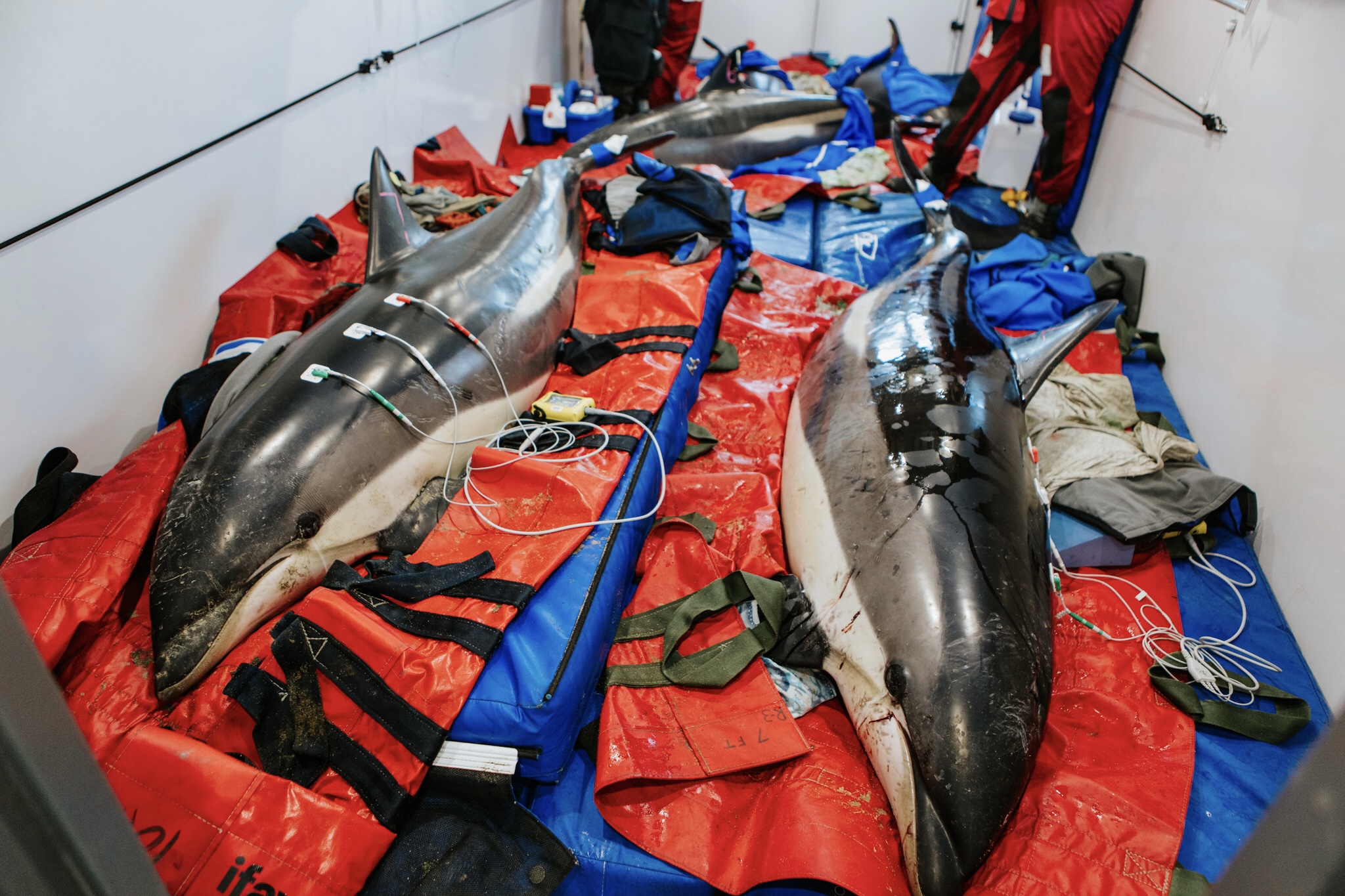
Thanks to a strong local community and IFAW’s extensive volunteer network, initial photos taken at 7 a.m. suggested that at least three dolphins were stranded in the shallow waters of Herring River. Wellfleet is a common location for mass stranding events due to its shape within the hook of Cape Cod’s shoreline, and due to large tidal fluctuations in Cape Cod Bay.
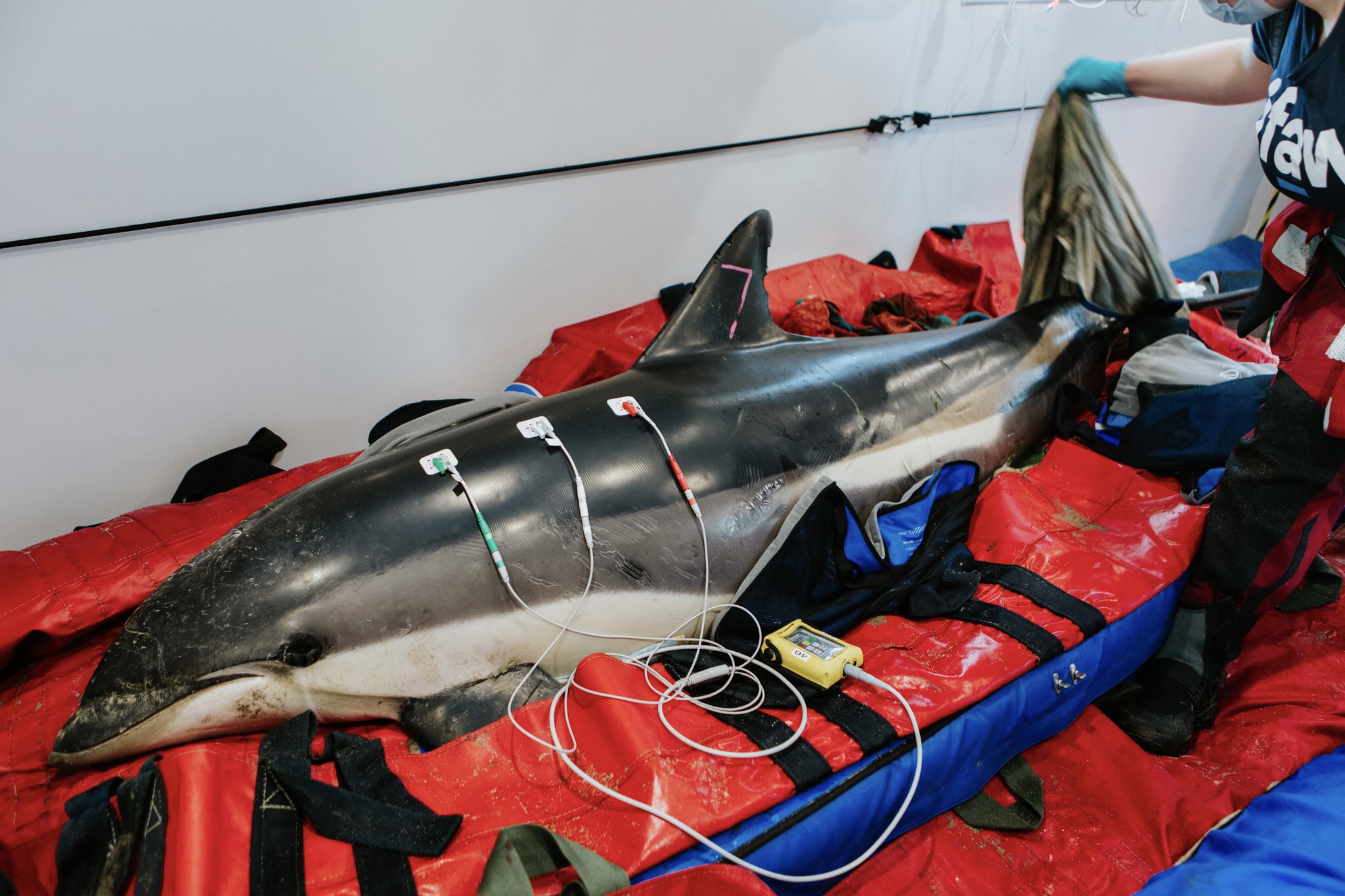
Responders arrived on-site just before 8 a.m., which also marked the morning low tide in Wellfleet. All told, more than 40 staff, interns, AmeriCorps members and trained volunteers were on-site. The National Park Service also assisted with managing crowds and logistics for the rescue.
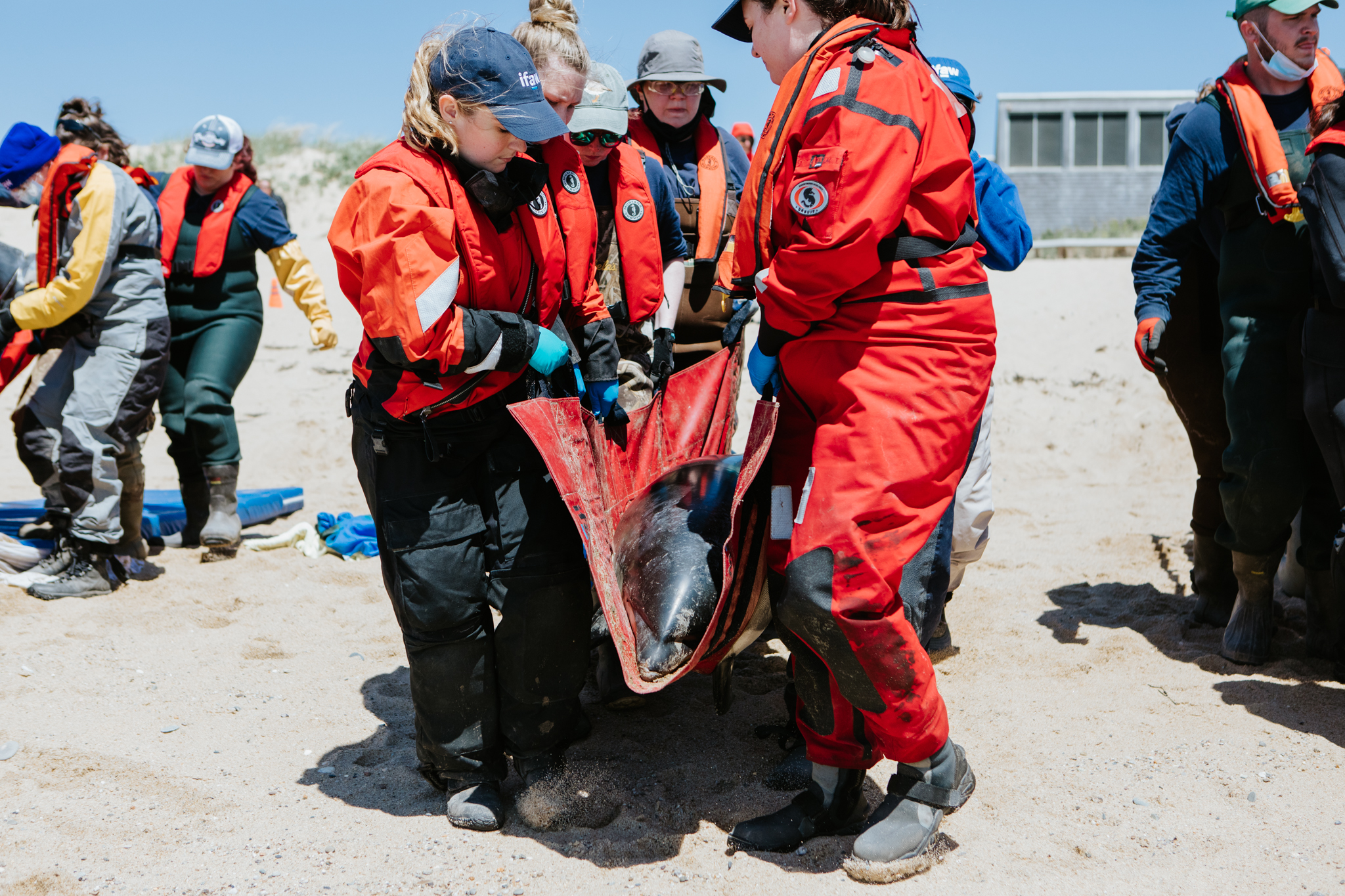
“The first course of action when we arrived was to coordinate how best to access the dolphins and get our equipment out to their challenging location,” said Misty Niemeyer, Animal Rescue Officer for IFAW’s Marine Mammal Rescue & Research team. “The dolphins appeared alert and in good health, but the day was sure to be sunny and warm and we needed to move quickly.”
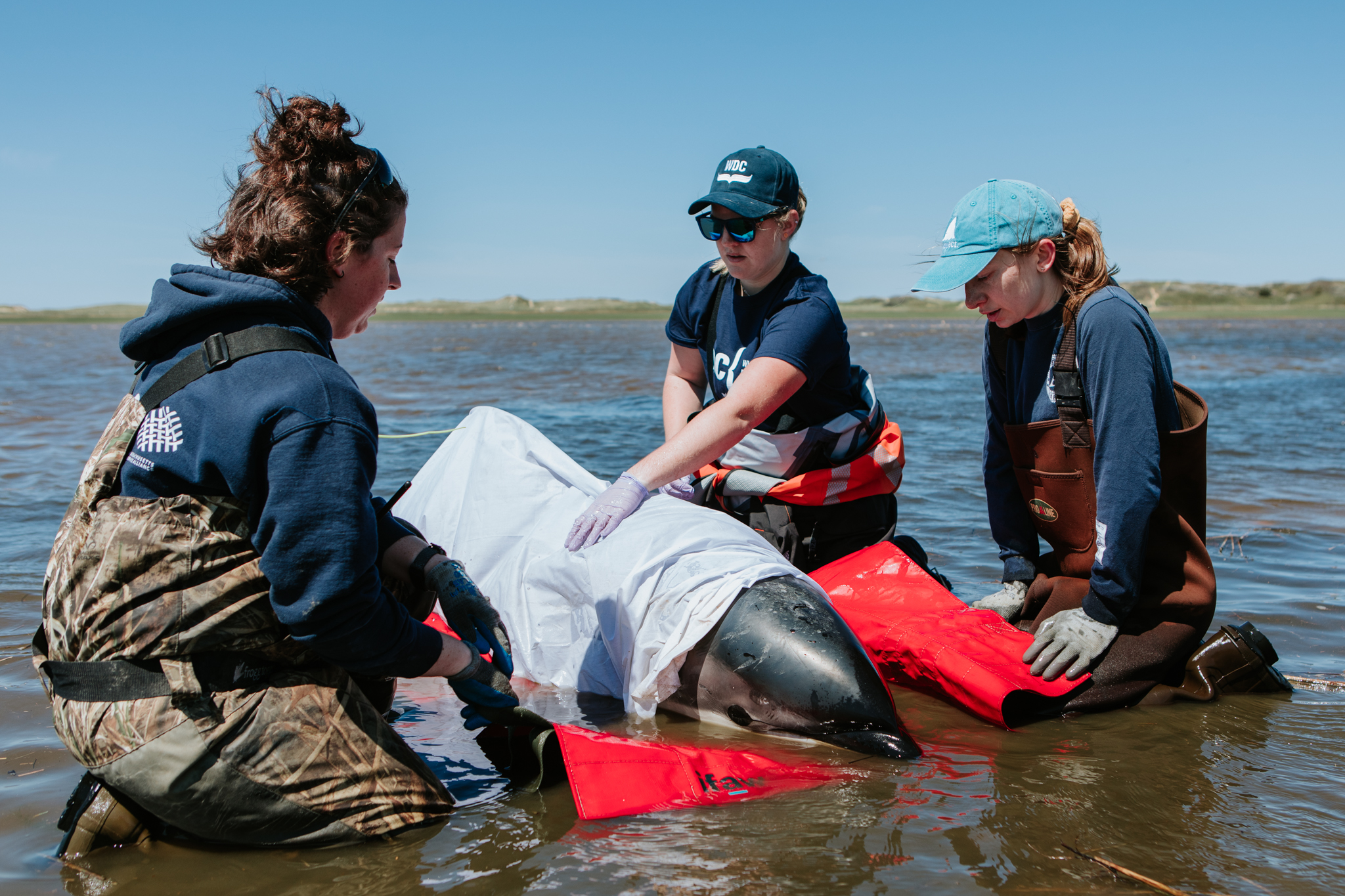
Niemeyer added that the tide was beginning to come back in. “Our team faced the increased difficulty of rising waters, but we know from experience that it’s not an option to leave the dolphins in this area, because they often get caught in a repetitive cycle of tides and re-strand.”

The IFAW team used cooling blankets on the dolphins that, when soaked in water, act to maintain a healthy body temperature for animals in hot weather.
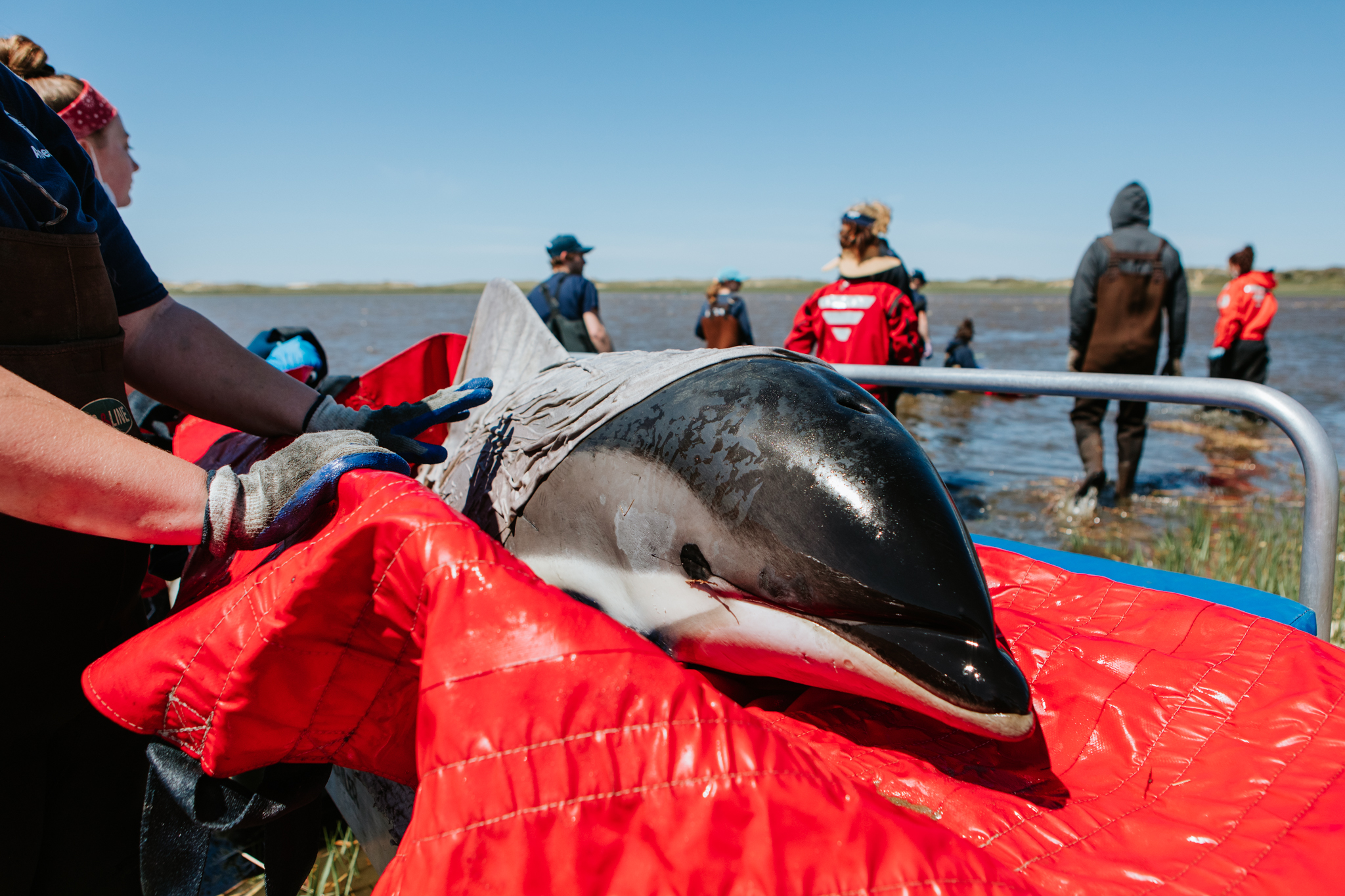
All seven dolphins were transported to a deeper water release site off Provincetown, traveling in IFAW’s mobile dolphin rescue clinic. This one-of-a-kind vehicle was custom designed to meet the needs of what is considered a global stranding hotspot on Cape Cod. The vehicle—through the generosity of donors—enables IFAW experts and veterinarians to treat as many as nine dolphins at a time for dehydration and shock caused by stranding.
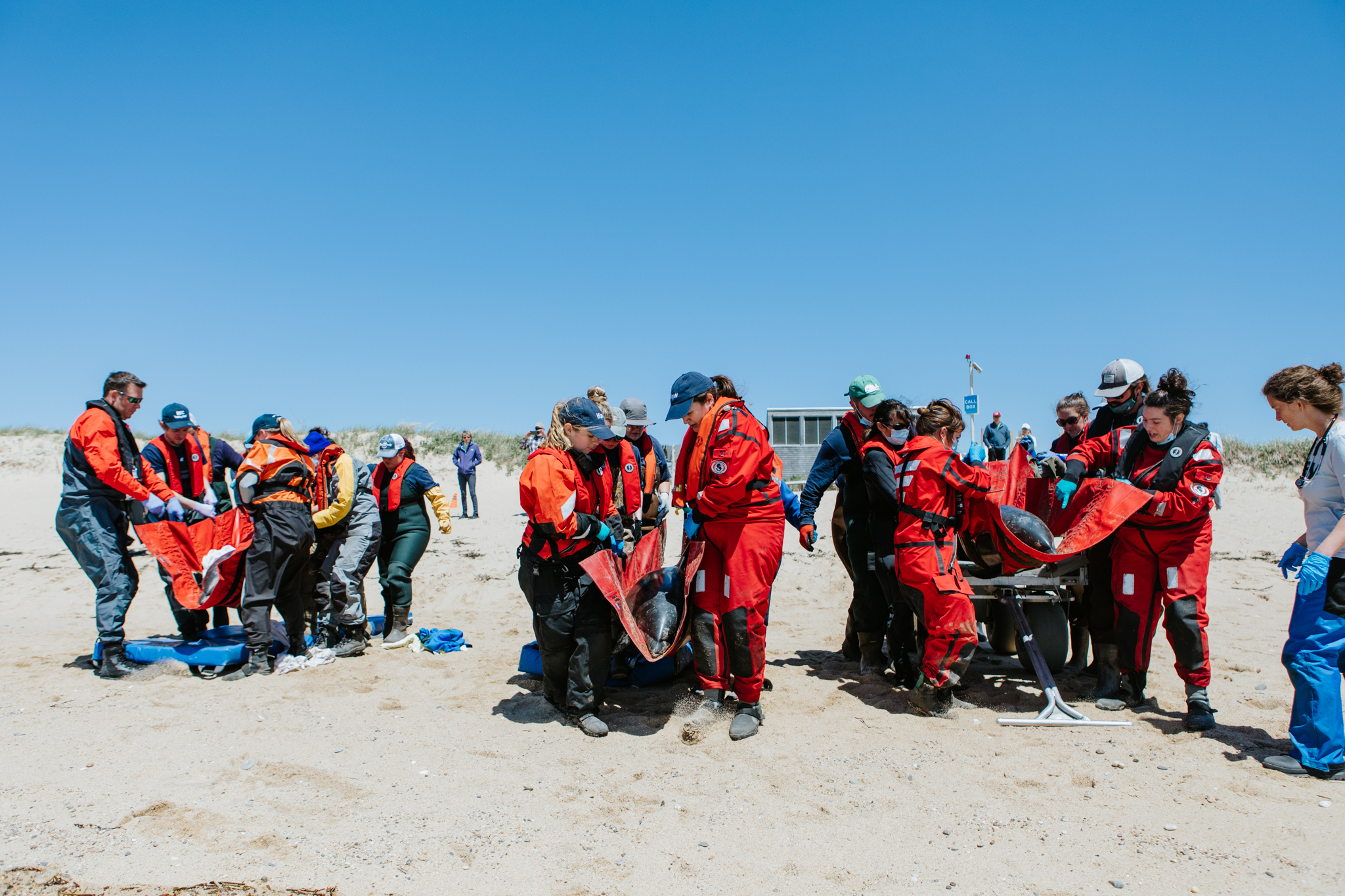
“Today’s rescue and release went about as smoothly as we could hope, thanks to incredible support from our IFAW volunteer responders, AmeriCorps Cape Cod, and this local community,” said Niemeyer. “The largest and final released dolphin did appear a bit stressed, and we fitted that dolphin with a temporary satellite tag to monitor its success. We released the dolphins in three rounds, and they eventually all swam off strong into deeper water. We are optimistic about their journey ahead.”
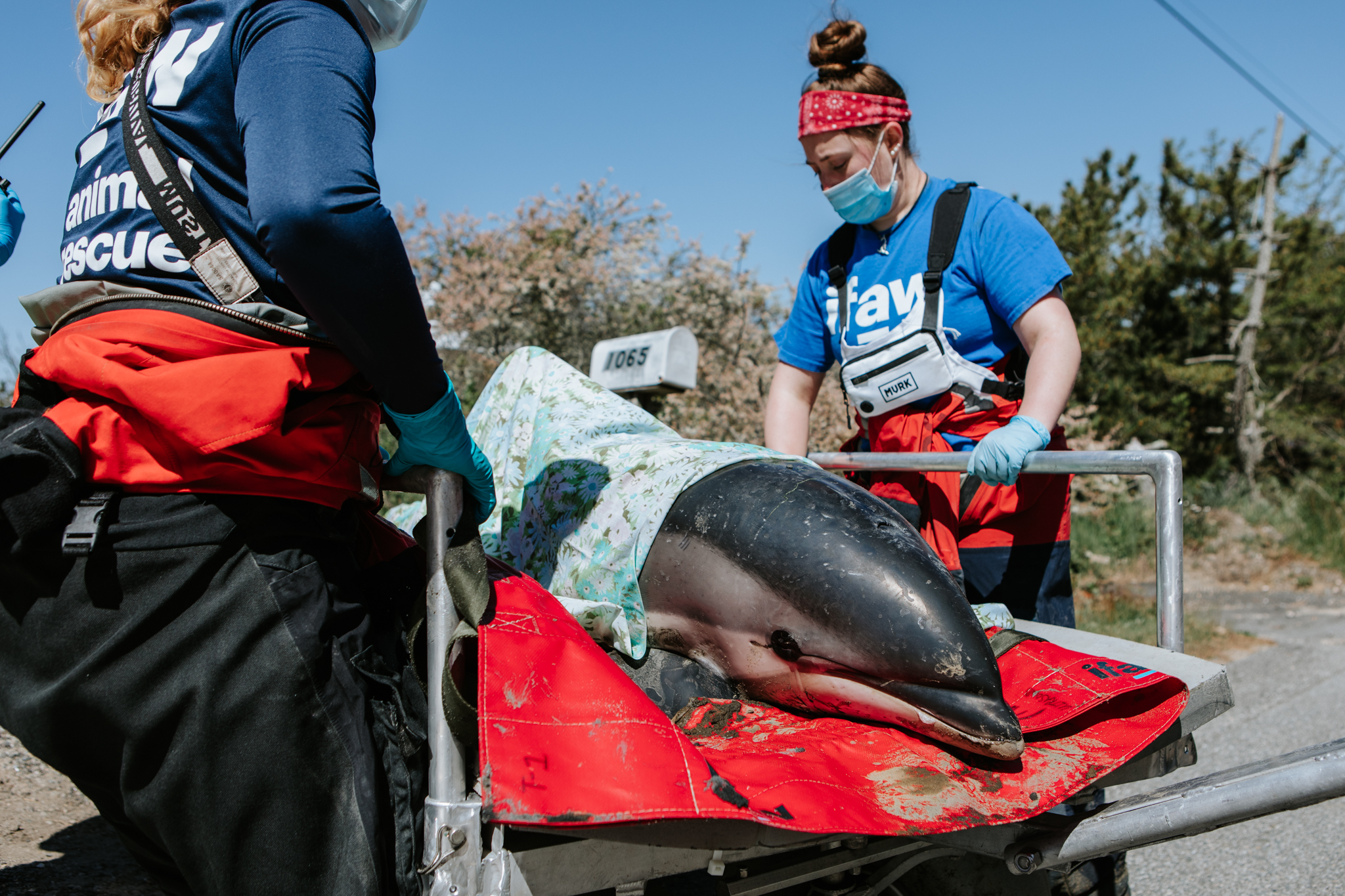
At lengths of approximately 6–8 feet (183–244cm)—the largest weighing approximately 250lbs (113kg)—today’s stranded dolphins were most likely all sub-adult males. This pattern has been seen before with Atlantic white-sided dolphins—younger males traveling separately from females and calves. Atlantic white-sided dolphins can be unpredictable when it comes to the time of year they strand.
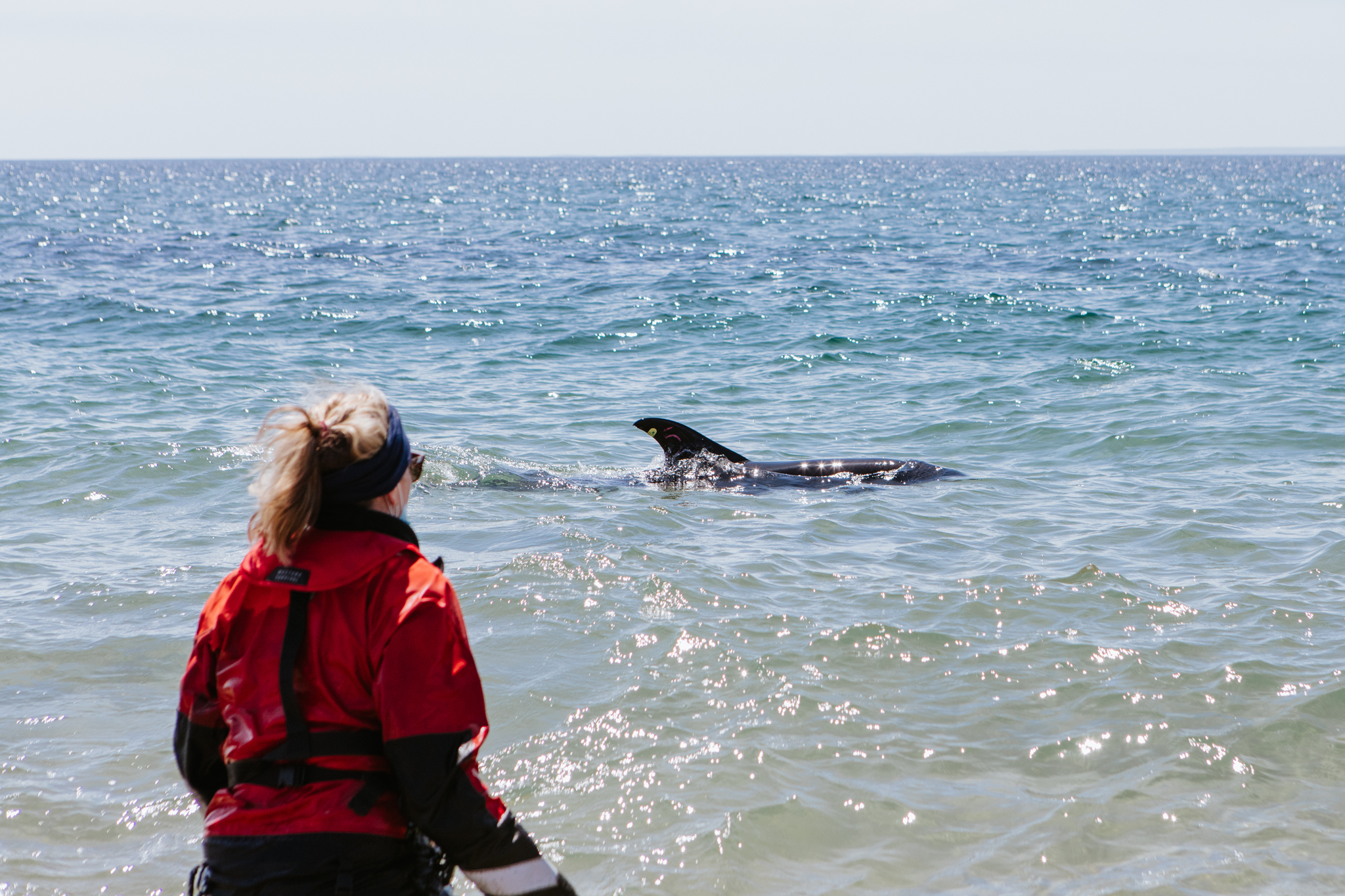
Thankfully, the dolphins were all released off Herring Cove Beach in Provincetown. IFAW will monitor the progress of the pod via one of the dolphin’s satellite tags in the coming days.